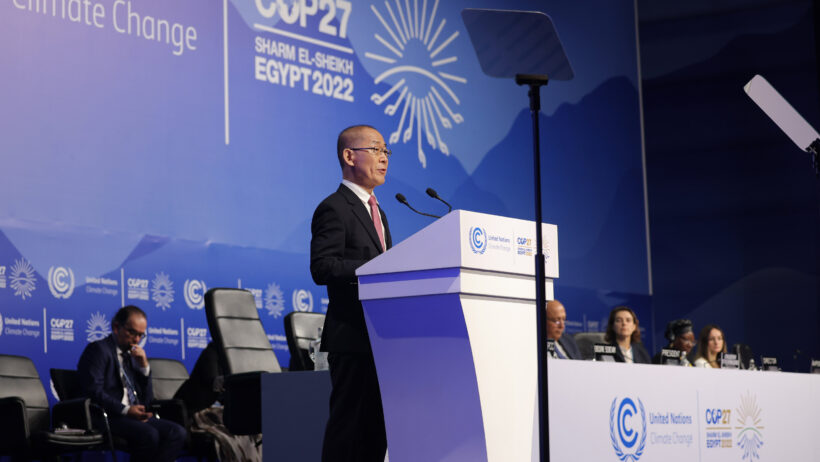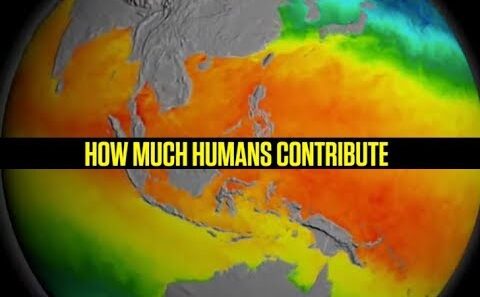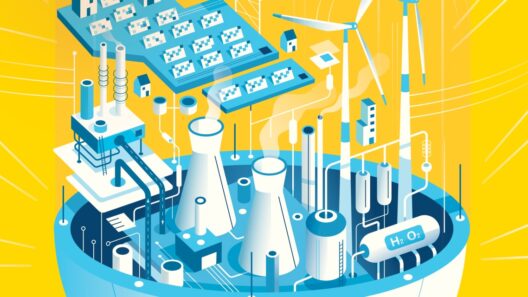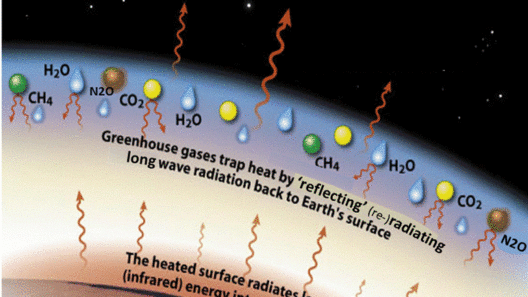The climate crisis is arguably one of the defining challenges of our time. As scientists warn that Earth is on the precipice of hitting critical global warming thresholds by the early 2030s, we find ourselves in a precarious race against time. But can humanity truly reverse the impending consequences of climate change before it’s too late? This question looms large, prompting us to delve into the complexities of global warming, its implications, and potential solutions.
Global warming, chiefly driven by the excessive accumulation of greenhouse gases in the atmosphere, has led to profound changes in our climate systems. Carbon dioxide (CO2) and methane (CH4) emissions, the primary culprits, arise from burning fossil fuels, deforestation, and various agricultural practices. The result is a warming planet characterized by rising sea levels, shifting weather patterns, and increased frequency of extreme weather events like hurricanes and droughts.
According to climate scientists, the tipping point for catastrophic climate change is projected to fall between 1.5 and 2 degrees Celsius above pre-industrial levels. Achieving this seemingly modest increase requires rapid and substantial cuts to our greenhouse gas emissions. The Intergovernmental Panel on Climate Change (IPCC) has underscored the necessity of halving global emissions by 2030 to stave off the most dire consequences of climate change. Will humanity step up to this formidable challenge, or will we falter in the face of urgency?
The stakes could not be higher. If we fail to take immediate action, we risk irreversibly altering our ecosystems, causing widespread habitat loss, species extinction, and threatening food security worldwide. Envision the repercussions: entire communities could face displacement due to rising seas, agricultural productivity may decrease as temperatures soar, and health risks could escalate through the rise of climate-related diseases. The sociopolitical ramifications could be vast, sparking conflicts over dwindling resources.
However, while the outlook may seem grim, it’s essential to recognize the multitude of innovative strategies emerging to combat climate change. Renewable energy sources, such as solar, wind, and hydropower, hold the potential to drastically reduce our dependency on fossil fuels. Transitioning to a clean energy economy not only mitigates emissions but also spurs job creation and technological advancement. The real question is: can we scale these solutions quickly enough to meet the impending deadlines?
Technological innovation plays a critical role in this paradigm shift. Advances in energy storage, energy efficiency, and carbon capture and storage (CCS) systems can facilitate a transition to a low-carbon economy. For instance, large-scale battery storage allows for the harnessing of solar and wind energy, making it feasible to provide stable power even when sunlight fades or the wind ceases. The burgeoning field of electric vehicles (EVs) promises to reduce emissions from one of the most significant contributors to air pollution in urban areas. But are we ready to embrace these transformative technologies on a mass scale?
Moreover, the role of policy cannot be overstated. Governments worldwide must implement stringent regulations and incentives that promote sustainability. Carbon pricing mechanisms, subsidies for renewable energy, and ambitious climate targets can catalyze change at both the national and international levels. The Paris Agreement exemplifies a collective response to climate change, fostering global cooperation in reducing emissions. Yet, the effectiveness of such agreements hinges on enforceability and accountability. Are nation-states prepared to uphold their commitments amid competing economic interests?
Behavioral change is another lever that can foster a societal shift towards sustainability. Individuals can contribute to mitigating climate change by making conscious choices in their daily lives: reducing waste, adopting a plant-based diet, and utilizing public transportation or cycling. Collective action amplifies the impact of individual efforts. Grassroots movements, environmental organizations, and community initiatives can galvanize public support for climate action, demonstrating that every action counts. But can we sustain the momentum and make eco-friendly living a societal norm?
Between technological advancements, policy implementations, and personal responsibility, the tools available to combat climate change are plentiful. However, the challenge lies not only in the availability of solutions but also in their adoption and integration into existing systems. As governments, corporations, and individuals grapple with the implications of climate change, the urgency for decisive action is palpable. Are we ready to prioritize sustainable practices over immediate economic gains?
The intersection of climate change with social justice adds another layer of complexity to this crisis. Marginalized communities often bear the brunt of climate impacts without the resources to adapt. Thus, climate action must also encompass equity, ensuring that solutions do not exacerbate existing inequalities. This involves uplifting the voices of those most affected by climate change and integrating their perspectives into decision-making processes. Can we foster a just transition that leaves no one behind?
As we navigate these intricate challenges, the question still remains: can we fix global warming before it’s too late? The answer is a resounding possibility, contingent upon our collective will to act swiftly and decisively. The convergence of innovative technologies, supportive policies, and grassroots efforts creates a formidable arsenal in this fight against climate change. But we must act with urgency. The clock is ticking, and in this race against time, every second counts. The fate of our planet may well depend on how we respond—today and in the coming years.
In conclusion, embracing a future that prioritizes sustainability is essential if we aim to reverse the trajectory of global warming. It is a formidable challenge, yet one that holds the promise of a healthier, more equitable planet for generations to come. The question is no longer whether it can be done; it is whether we are ready to make it happen. Let us rise to the occasion and exemplify the courage that this moment demands.








